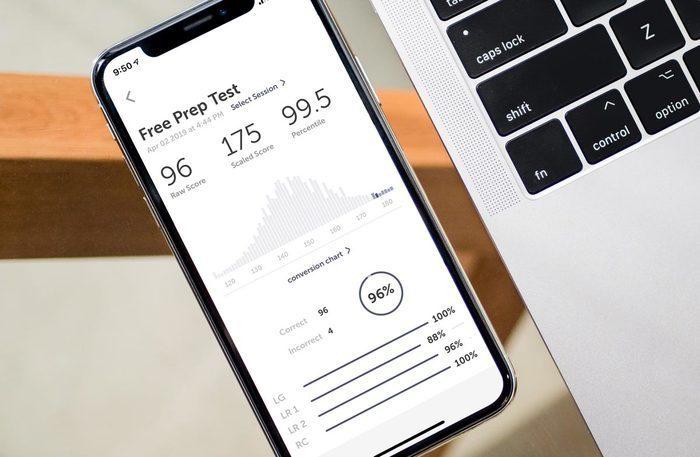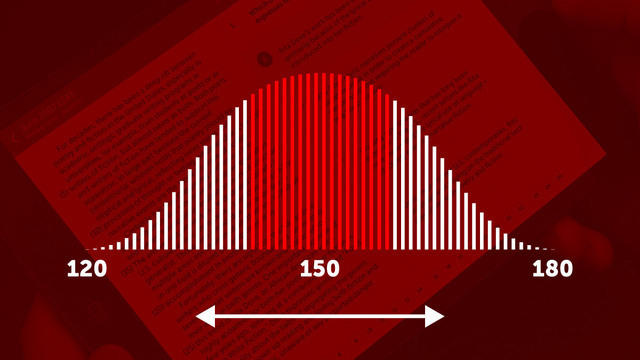If you want to be among the elite who’ve studied in a top law school, you need a good law school admission test (LSAT) score.
The LSAT is a mandatory exam required to get into most US law schools, but sitting for the LSAT is not enough. You also need a score that meets your desired law school’s minimum requirements.
The LSAT exam consists of roughly one hundred multiple-choice questions. The exam tests your reading comprehension as well as critical and analytical reasoning competence—skills that are crucial to coping with the law school curriculum.
Scores range between 120 and 180 on the LSAT. However, the average LSAT score is 150, which is enough to get you into most American Bar Association-accredited law schools.
Why Are LSAT Scores So Important?
The primary qualifying determinants for law school admission are your LSAT score and your undergrad grade point average (GPA). Having a solid undergrad GPA is important, but a good LSAT score counts even more. Some law schools say an applicant’s LSAT score makes up about 70 percent of their admission chances.
In an ideal situation, both your GPA and your LSAT should be high. For example, the top ten-ranked law schools typically require at least a 3.50 GPA and a 170 LSAT score. If your GPA is lacking, though, don’t stress too much. Often a high LSAT score can make up for it and get you into the school of your choice.
In fact, looking at recent law school rankings and trends, you’ll see that most programs grant their admissions based on high LSAT scores rather than GPAs. What you major in as an undergrad doesn’t have to be law-related either. Some applicants come into law school with no knowledge of the law.
It is because undergrad learning may not be directly related to your competence for law school that admissions place more value on your LSAT score. The LSAT gives a better assessment of your ability to cope with the law school curriculum and legal practice in general. It is a consistent and accurate method of testing the likelihood of success in law school and verifies that you have the minimum reading, reasoning, and analytical skills to cope with the program.
Aside from testing your law school competence, a good LSAT score improves your access to law school scholarship opportunities. For a top five law school, an LSAT score of 175 and above increases your chances of being admitted and being awarded a full scholarship by the school.
Such a score also puts you in the 99th percentile of LSAT takers, making you a rare and highly coveted law school candidate.
How Is the LSAT Scored?
As previously stated, the score range for any LSAT exam is 120 to 180, but the average score is about 150. However, most of the top ten law schools require a candidate to have scored at least 165 on the LSAT.
Each LSAT exam consists of about a hundred questions; those that are answered correctly amount to about 1 point added to your raw score — which can range between 0 and 101. This raw score is then converted, with the help of an LSAT formula, into a score of 120 to 180.
The final LSAT score report contains more than just your score; it also contains your percentile rank. Knowing your percentile rank is equally vital in determining whether your LSAT score is good enough to get into your desired school.
What Is the Percentile Rank?
The percentile rank refers to how your LSAT score compares to other law school aspirants who took the exam with you. Knowing how well you fared against the competition gauges how competitive your LSAT score is for different law schools.
For example, if you rank in the 70th percentile for an LSAT exam, that means your score is higher than 70 percent of test-takers and lower than or equal to 30 percent. These are good odds compared to an applicant in the 25th percentile.
Those with higher percentile scores often trump most other test-takers—meaning the higher you score, the better your chances of gaining admission. After all, it’s not enough to just meet a school’s accepted minimum LSAT score. Many schools have limited slots, and if you meet the minimum but fall at the bottom percentile of applicants, you could still be rejected.
For instance, if Yale considers applicants with LSAT scores of at least 170, you must score around 175 to increase your chances of being accepted for a Juris Doctor law degree program—and scoring high on the LSAT is no cakewalk. Unlike other standardized tests, cramming for the LSAT is impossible. LSAT questions require reasoning skills, not regurgitating facts in response to questions.
Therefore, if you want to score as high as possible on the LSAT, you need to practice a lot.
By practicing as many LSAT questions as you can lay your hands on, you become familiar with how the questions look and how to select the best answers. The more familiar you are with the logic games, reading comprehension, and the logical reasoning parts of the LSAT, the better your chances of acing it.
What Is a Good LSAT Score?
By now, you likely understand that what qualifies as a good score is fairly variable. By achieving a good LSAT score, you confirm to law schools that you can read and reason at high levels, which is what they want from students.
The guidelines above are a rough estimate, but it also pays to find out the minimum required LSAT score of your desired law school so that you can work toward scoring higher than that. For example, if Harvard accepts candidates with a minimum LSAT score of 170, work toward scoring 175.
If you do score 175, your chances of getting in are greatly improved. On the other hand, scoring the minimum means facing stiff competition, which also means the rest of your application (resume, GPA, and so on) will be the real deciding factors.
You can also use law school admission predictors or calculators to predict your chances of getting into specific law schools based on your undergraduate GPA and LSAT score. And here’s a tip from the experts: the earlier you submit your application to the preferred law school, the better.
Early submission is especially helpful if your LSAT score, and any other part of your application, is less than perfect. In the early stages of the admission season, law schools evaluate applications against less competition, which increases your chances of being favorably considered.
However, once more applications start pouring in, especially toward the end of the admission deadline, the evaluation of applications becomes stricter as they whittle down the number of admissible applicants.
Good LSAT Scores for Top Law Schools
Each law school has a unique set of policies regarding LSAT scores. Some accept applicants with the best scores only, and some are a bit more lenient. As long as you have a score that surpasses a school’s minimum requirements, you have a chance of being accepted.
So, what do you need to score to get into the law school of your choice? To determine what counts as a good LSAT score for the school of your choice, you need to identify what the school wants.
For example, if you are applying to a school like the University of Pittsburgh or Vermont Law School, an LSAT score of 160 is plenty. On the other hand, if you apply to a top ten law school like Columbia University, Harvard, or the University of Chicago, 160 won’t get you anywhere. A good LSAT score isn’t enough for those schools. What you need is an almost perfect LSAT score.
Harvard is exceptionally competitive. To be in the 75th percentile, you need to score at least 175. Scoring 170 puts you in the 25th percentile of Harvard applicants. Even if your score is very high, there is still a high chance they won’t admit you.
This brings us to an important point: a high score does not guarantee you’ll get into the school you want. It helps, yes, but it’s only one factor in the review process.
Here is a breakdown of what counts as a good enough score for law schools based on the school’s rank:
- Top-five law schools: 170 to 180. Schools like Harvard and Yale, which are the top two, rarely accept applicants with less than 172 on the LSAT.
- Law schools ranked between 5 and 10: 165 to 170
- Law schools ranked between 10 and 50: 155 to 165
- Law schools ranked between 50 and 100: 150 to 162
- Other schools: 135 to 150
These are the minimum required LSAT scores. So, naturally, scoring higher than the minimum increases your chances of admission to the school.
Is a 170 Good Enough?
With an LSAT score of 170, your chances of getting into any school you want are good. That includes some law schools in the top ten. Nearly half of the students in the best US law schools get in with a score of less than 170. Meaning, with 170, you are still in a good position.
Again, does this mean that if you score 170 on the LSAT, you are 100 percent guaranteed to get into the law school of your choice? No, even if you get the highest possible score, 180, your admission into the law school of your choice is still not 100 percent guaranteed.
Why?
As mentioned before, there’s more to getting into a law school than just the LSAT. Sure, the LSAT is the primary determining factor, but other considerations influence your eligibility for admission. These factors include your GPA, personal statement, resume, and recommendation letters.
Remember, law schools have limited slots. Even if they wanted to, they can’t take in every candidate who scores above 170. So yes, your LSAT score is more important than your GPA, but your admission chances sink if your GPA falls below minimum requirements. Likewise, prospects fall if your resume doesn’t show valuable work experience, your personal statement doesn’t inspire, or recommendation letters are unenthusiastic—there’s a lot more to it than one test score.
It’s mostly about how much competition you are facing. If 170 on the LSAT is among the highest scores during the admission window, you’ll likely get in even though the rest of your application is lacking. On the other hand, if several other applicants scored 170, and other parts of their applications outshine yours, chances are the law school will pick the other applicants over you.
Is 150 a Good LSAT Score?
The correct answer to this question depends on your desired law school and career goals. If you aren’t too picky about the quality of the law school, scholarships, or career opportunities after law school, then scoring 150 on the LSAT is enough.
If you want more, such as getting into one of the top ten law schools in the US to score better career opportunities, then an LSAT score of around 165 should be your goal.
How To Score Well on the LSAT
Long story short, LSAT scores aren’t necessarily everything, but they are a very important factor in the admission process. However, you won’t score well just trying to memorize facts; the LSAT is not your typical test.
Instead, focus on exercising your reasoning, logic, and comprehension skills. A good way to do this is to take a variety of LSAT practice tests but avoid taking the same test over and over. That way, you know what to expect, and you’re utilizing the skills necessary to pass. You may also find brain teasers a fun pastime to bulk up your score.
Some students may even want to take up the services of a reliable LSAT tutor. Tutors are a great resource for advising you on what to expect from a test. They can also craft practice questions and help determine where your weaknesses are so you can hone all your skills.
It’s important to remember, though, preparing to take the LSAT isn’t just something you can cram for in a weekend. The LSAT is unlike other tests in that you can’t just memorize facts. The LSAT requires you to have logic and reasoning skills and to be able to think on your feet. Therefore, students shouldn’t just start studying a week before the test; they should be actively preparing for months in advance.
When Is the LSAT Administered?
The LSAT is offered multiple times a year, and eight exams are scheduled for 2021-2022. It’s important to note that while it can be taken as many times as necessary to get a top score, it costs $200 for each test that’s administered, along with other fees (late enrollment, etc.) — so studying is crucial.
Due to the COVID-19 pandemic, a remotely proctored version of the LSAT will be offered through June 2022. While there are small differences in the format of the exam, the scores will be equivalent.
Final Thoughts
Getting a good score on the LSAT is essential for those looking to enroll in a top law school. Though LSAT scores aren’t the only things university administrators pay attention to, they are a good barometer for how a prospective student will fare in their program, so it’s important to be actively studying for your LSAT well in advance of the test.
If you’re nervous about your study habits or are feeling unsure about what to expect, it may be good to look into local study groups or find an LSAT tutor. As the old adage goes, “failure to prepare is preparing to fail.”












